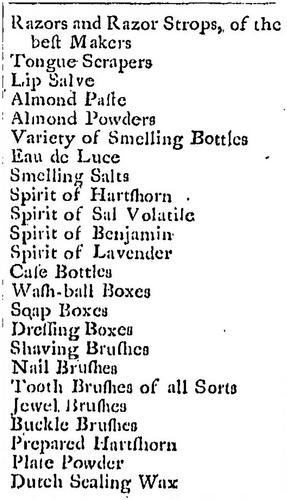使礼貌:香水和男性自我塑造在英国,c。1750 - 1800
IF 0.2
3区 社会学
0 HUMANITIES, MULTIDISCIPLINARY
引用次数: 0
摘要
在18世纪,调香师一直与女性化妆品的制造和销售联系在一起。然而,这篇文章认为,调香师作为男性商品零售商的地位一直被忽视,事实上,他们是构建彬彬有礼的男性气质的关键推动者。在这样做的过程中,它也提出了关于特定类型的零售和商店空间性别的更广泛的问题。本文章由计算机程序翻译,如有差异,请以英文原文为准。

Enabling Politeness: Perfumers and Male Self-Fashioning in Britain, c. 1750–1800
Perfumers have long been associated with the manufacture and sale of cosmetic products for women in the eighteenth century. This article argues, however, that the place of perfumers as retailers of goods for men has been overlooked and that they were, in fact, key enablers in the construction of polite masculinity. In so doing, it also raises broader questions about the gendering both of particular types of retail and of shop spaces.
求助全文
通过发布文献求助,成功后即可免费获取论文全文。
去求助
来源期刊

Journal for Eighteenth-Century Studies
HUMANITIES, MULTIDISCIPLINARY-
CiteScore
0.40
自引率
25.00%
发文量
59
 求助内容:
求助内容: 应助结果提醒方式:
应助结果提醒方式:


